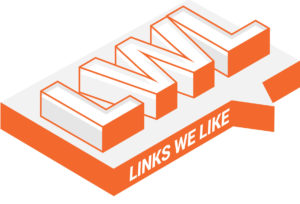LINKS WE LIKE #9

Politics and Governance
- Southeast Asia Scheme Taps Taxi App to Ease Traffic Jams -Avantike Chilkoti, The Financial Times (@AChilkoti)
A new initiative, OpenTraffic, has been launched by the World Bank to help mitigate the crippling urban congestion in Southeast Asia. Using live data from GrabTaxi, the World Bank believes that Big Data sources and statistics can help improve traffic and road safety.
- Restructuring the Social Sciences: Reflections from Harvard's Institute for Quantitative Social Science -Gary King, PS: Political Science and Politics, American Political Science Association (@APSAtweets)
As the social sciences enter a transition towards research that solves problems, diverse datasets, collaboration, and practical impacts, universities have begun to build institutions to respond to the this renaissance. The Institute for Quantitative Social Science (IQSS) at Harvard University has emerged as one of these institutions and gives recommendations and suggestions for other academic entrepreneurs seeking to join the renaissance as well.
- The Blockchain Gang -James Grimmelmann and Arvind Narayanan, Slate (@grimmelm) (@random_walker)
Authors describe the valuable applications of block chains and their use for international transactions, but warn about the implications in property law. Although Bitcoin and the block chain are ushering in new frontiers in research and adding better consumer protections, they also pose great potential for corruption and exploitation.
- Joint Statement on the Final Adoption of the New EU Rules for Personal Data Protection -European Commission (@EU_Commission)
The European Commission has recently issued a press release confirming the final adoption of the EU data protection rules by the European Parliament. The new data protection rules will allow citizens to obtain more information about how their data is processed and will strengthen the fundamental right to personal data protection.
Data Ethics and Literacy
- Location Data on Two Apps Enough to Identify Someone, Says Study -EurekAlert, AAAS (@EurekAlertAAAS)
Without realizing it, more and more people are sharing their location on a number of apps, allowing for individuals to be identified with high certainty by matching movements and location metadata on social media apps to personal accounts. Researchers at Columbia University and Google have begun to pinpoint privacy issues involved in this process through a new algorithm they developed, which compares geotagged posts on Twitter with Instagram and Foursquare posts to identify users.
- How a Cashless Society Could Embolden Big Brother -Sarah Jeong, The Atlantic (@sarahjeong)
Sarah Jeong describes the potential issues that arise from cash being converted into information in a cashless society, specifically how when money becomes data, surveillance, control and limitation result. A cashless society could potentially cause pervasive financial censorship and extend the reach of paternal bureaucratic states, impacting everyone and even more disparately impacting the poor.
- Microsoft Research is Looking at DNA for Storing Your Data -Kit McDonald, WinBeta (@WinBetaDotOrg)
The Molecular Information Systems Lab (MISL) at the University of Washington has recently begun to research the potential of an archival DNA data storage system. Although the possibility of the a long-term solution to limited data storage capacities through DNA, design and architectural implications still need to be discovered.
Funder and Partner News
- Energy Consumption Prediction Using People Dynamics Derived From Cellular Network Data -Andrey Bogomolov, Bruno Lepri, Roberto Larcher, Fabrizio Antonelli, Fabio Pianesi, and Alex Pentland; EPJ Data Science (@alex_pentland)
Researchers introduce a new approach using anonymized and aggregated telecom data to predict next week energy consumption. As growing populations and industrialization accelerate energy needs, novel findings could present a solution for better decision making in reducing energy consumption.


![M002 - Feature Blog Post [WEB]](https://datapopalliance.org/wp-content/uploads/2025/10/M002-Feature-Blog-Post-WEB.png)





